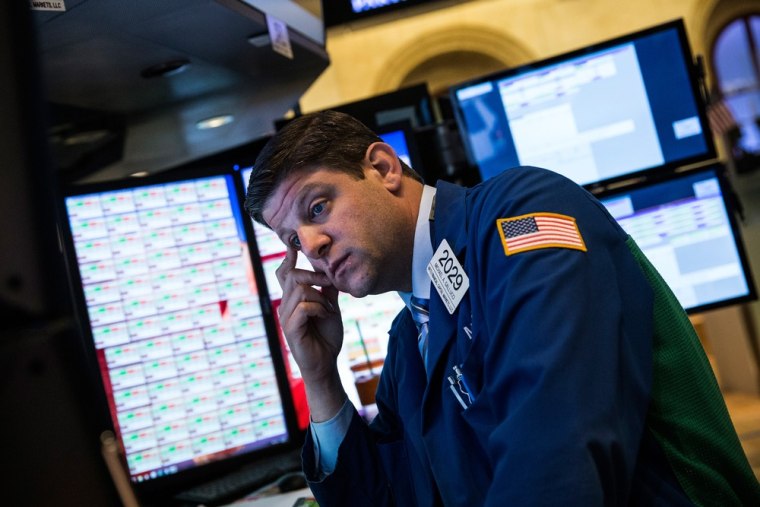The Dow slid more than 200 points Wednesday as investors, unsure about the Federal Reserve’s strategy to boost the economy, sold shares across the board. A less-than-stellar report on private business hiring provided the spark that enflamed selling.
At the closing bell, the Dow ended below 15,000 for the first time since May 6. The CNBC heat map for stocks prices was a sea of red.
The Dow has dropped almost 2 percent over the last two days, its worst two-day losing streak since November. It has not dropped for three consecutive days this year.
"I think we're at the point where there hasn't been a lot of good news, and the level of concern over the Fed's next action is kind of overwhelming," Fred Dickson, chief market strategist at D.A. Davidson & Co. in Lake Oswego, Oregon, told Reuters.
“The selloff's based on lukewarm economic data, fear over Fed tapering and it's also somewhat natural given the highs we've recently made," said Sal Arnuk, co-manager of trading at Themis.
The Standard & Poor's 500 Index was down 22.48 points, or 1.38 percent, at 1,608.90. The Nasdaq Composite Index was down 43.78 points, or 1.27 percent, at 3,401.48. The CBOE Volatility Index (VIX), widely considered the best gauge of fear in the market, spiked above 17.
(Read More: June Market Swoon Ahead? Maybe Not, Traders Say)
"For most of the year, the best thing that could happen for the market was to get data that were not too hot and not too cold—that would drive the Fed to keep QE (quantitative easing) and continue to provide liquidity for the markets," said Michael Sheldon, chief market strategist at RDM Financial Group. "However, at some point, if the economic data start to deteriorate, then instead of bad news becoming good news, the bad news may just be bad news."
The private sector created just 135,000 jobs in May, according to the ADP National Employment Report, less than estimates for 165,000. The government's labor market report, which includes both public and private sector employment, will be released on Friday. Economists surveyed by Reuters expect to see a gain of 170,000 jobs, slightly higher than the 165,000 jobs added in April.
Lee Hardman, a currency economist at Bank of Tokyo-Mitsubishi, said in a note that the ADP report has been an inaccurate predictor of nonfarm private payrolls so far in 2013. Traders, however, have used the weak economic conditions to keep hopes up that the Federal Reserve will not back off its easing measures anytime soon.
(Read More: Why Bad News Soon May Just Become...Bad News)
Meanwhile, the pace of activity in the services sector ticked higher in May to 53.7 from 53.1 in April, according to the Institute for Supply Management's services index. A reading above 50 indicates expansion in the sector. However, a key employment measure slipped to the lowest level since last July at 50.1 from 52.0.
"The ADP employment data and the employment component within the ISM services report, while not perfect, provide a hint that this month's employment data may be on the softer side," said Sheldon.
Economic expansion increased throughout the U.S. from April through mid-May, fueled by home construction, consumer spending and steady hiring, with eleven of the Fed's banking districts reporting "modest to moderate" growth, according to the Federal Reserve's latest region-by-region Beige Book survey.
In other economic news, factory orders rose 1 percent in April, recovering from a 4.7 percent drop in March, according to the Commerce Department. And unit labor costs tumbled 4.3 percent, while productivity rose 0.5 percent.
Earlier, the Japanese Nikkei tumbled nearly 4 percent when Prime Minister Shinzo Abe's third "Abenomics" arrow to boost the economy failed to impress investors. Other Asian indexes and European bourses also traded lower on the news.
Reuters contributed to this report.
